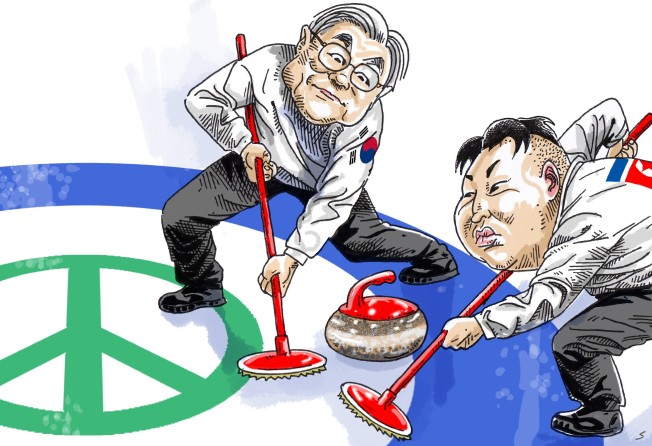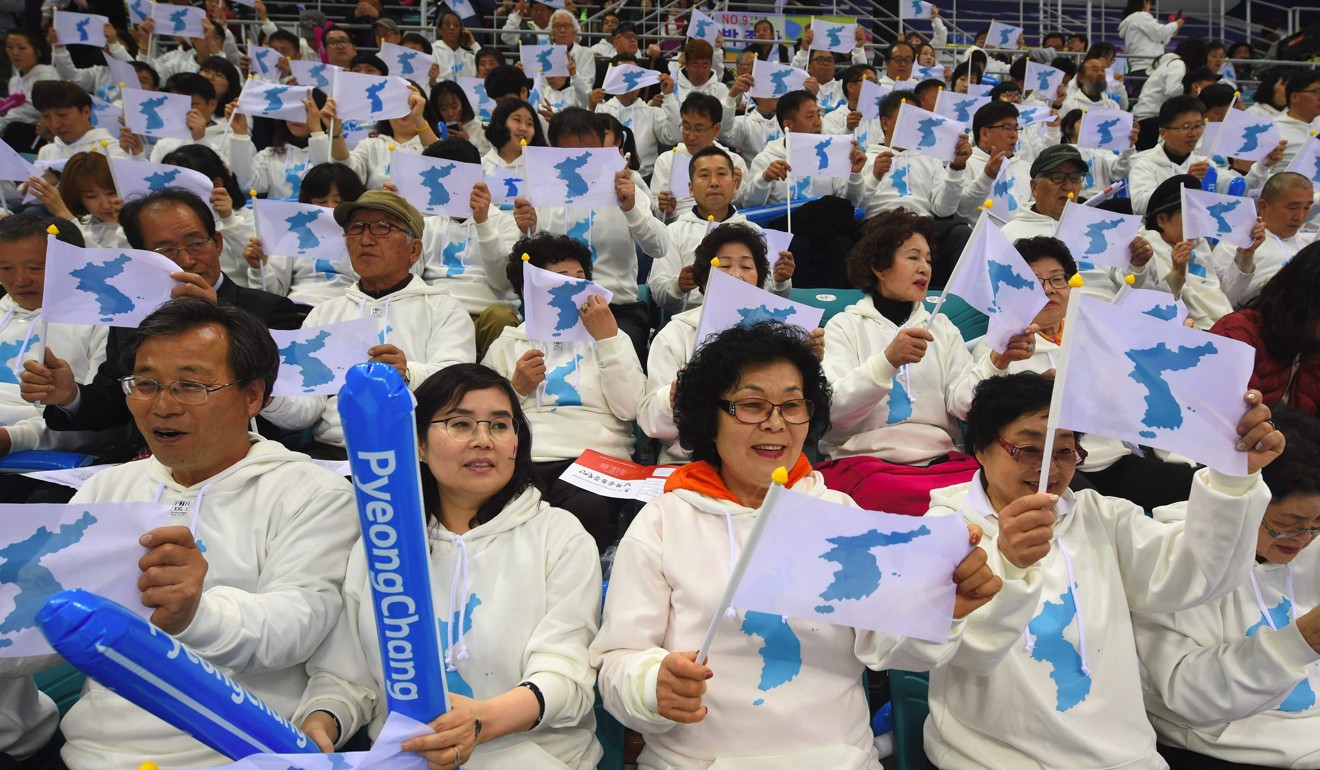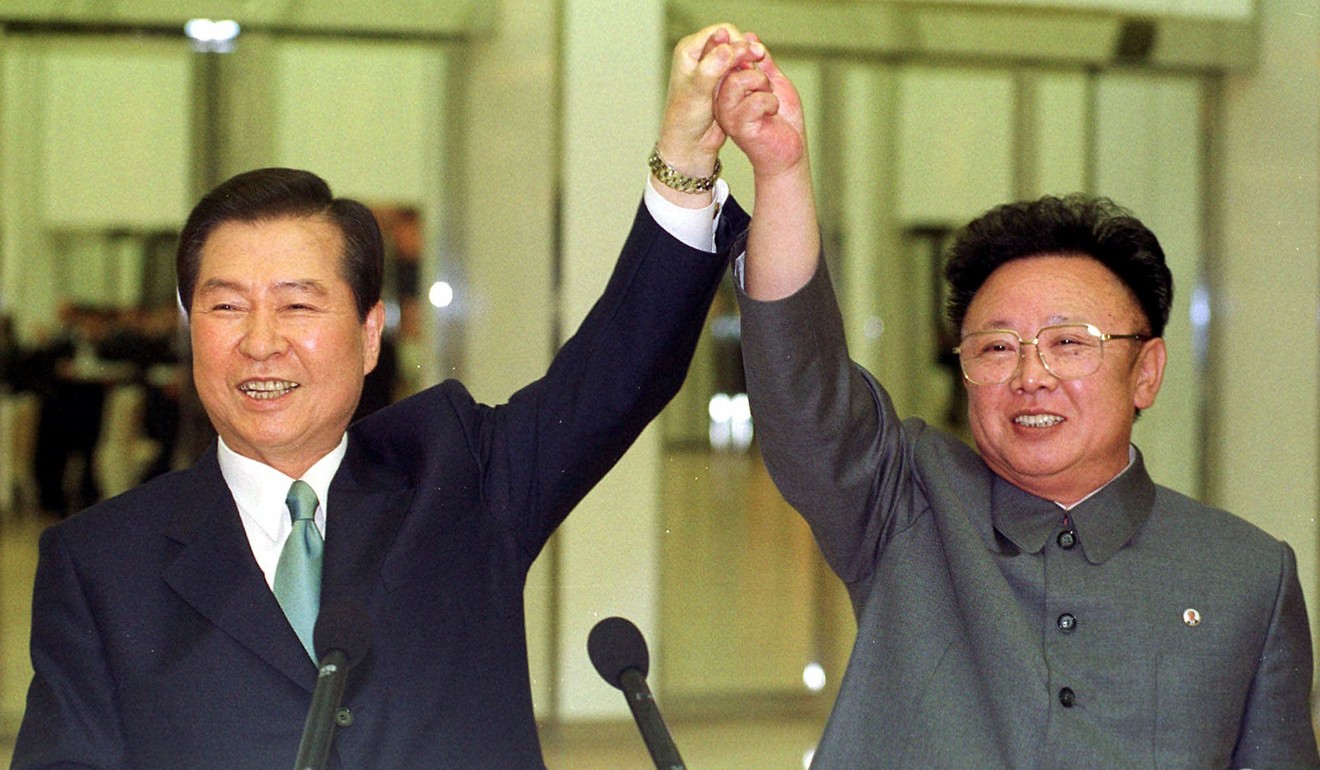Winter Olympics could be a first step towards necessary negotiations on North Korea
John Barry Kotch says there are precedents for de-escalation in the North Korean nuclear crisis that can be pursued if the two Koreas, plus China and the US, are willing to seize them. The Pyeongchang Olympics may be the venue to start this process

North Korean leader Kim Jong-un’s 2018 New Year address, combining a message of defiance towards Washington and conciliation towards Seoul, opened up an opportunity for the Korean peninsula not seen since Kim came to power five years ago. The wisest course for the United States for now is to be seen but not heard and let the Koreas have their moment.
The recent agreement on a new round of military talks between North and South Korea makes good sense, not least because there is already a protocol in place: the 1991 Basic Agreement on Non-Aggression, Reconciliation, Exchange and Cooperation, signed but never implemented, which provides in part for mutual notification and observation of military exercises. This agreement only governs relations between the two Koreas, and for the moment US forces need not be included, as the US-ROK Combined Forces Command is headed by a South Korean general in peacetime.
A second protocol would be trickier: the February 1992 Joint Declaration on the Denuclearisation of the Korean Peninsula, according to which both Koreas agreed to ban development, testing and deployment of nuclear weapons and whose continued validity was cited by the late Kang Suk-ju, a former North Korean negotiator. Since the South does not possess such weapons and the North claims to target the US mainland and not the South, Washington could justifiably stand in Seoul’s stead as the appropriate interlocutor.
Still, Pyongyang has made clear that its nuclear deterrent is not up for negotiation; its goal is acceptance as a nuclear state, something Washington rules out unequivocally. Time may be on the latter’s side, since the harder sanctions bite, the longer the delay for North Korea in attaining fully fledged ICBM capability, including a dependable re-entry vehicle. For this reason, there can be no slackening of UN Security Council sanctions imposed on Pyongyang. This would include any unilateral South Korean action such as reopening the Kaesong Industrial Complex, a hard currency earner for the North. As US Secretary of State Rex Tillerson reiterated at the recent Vancouver summit on Korea, “The purpose of the maximum pressure campaign is intended to cause North Korea to engage as a credible negotiating partner in addressing a pathway to a denuclearisation of the peninsula.”
Donald Trump promises ‘peace through strength’, denying war prediction
If no US president can countenance a North Korean nuclear deterrent targeting American cities, the only real opening for a negotiated breakthrough lies in making the US-South Korea alliance less threatening to the North. This would give tacit recognition to the fact that an increase in deterrence and defence capabilities since the Korean war have come with the price of a less stable peninsula, the underlying motivation for the North’s nuclear weapons.
There is no denying that an alliance linking one Korea with the world’s most powerful military creates an imbalance requiring a review of capabilities commensurate with a less threatening military posture. One possibility would be negotiation of a peace treaty, the goal of four-party talks in Geneva two decades ago, in tandem with multilateral security guarantees for both Koreas by major powers, including the US and China.

Absent US-North Korean negotiations, the major outside powers and past negotiating partners with interests in the Korean peninsula – the US, China, Russia and Japan – should renew a dialogue at the foreign minister, deputies or designated diplomat level with the goal of promoting an inter-Korean accommodation and enhanced political stability. Over time, the two sets of talks could be merged.
This not only makes good political sense but is essential to avoid miscalculation based on a “false positive”, such as occurred in Hawaii, when an incoming ballistic missile warning was issued erroneously and could have easily prompted a response. A fail-safe mechanism is urgently need, routed through Moscow and/or Beijing if necessary. The above four powers also need to remain in close contact to ensure that UN sanctions are fully implemented, as well as backstop inter-Korean negotiations, where helpful.
The Pyeongchang Winter Olympics are an occasion for both competition and celebration. The emotional euphoria likely to accompany North and South Korean athletes as they march into the Olympic stadium under the white flag of a unified Korean peninsula will be hard to resist, along with cheering on a unified women’s hockey team on the ice rink. That would be a far cry from the 1988 Games in Seoul, marred by a North Korean boycott following the downing of a KAL jetliner over the Indian Ocean by North Korean agents with the loss of 100 lives in an act of state-sponsored terrorism. On the positive side, the 1988 Games were also a turning point in South Korean international diplomacy, leading to the subsequent establishment of diplomatic relations between Seoul and Moscow and later Beijing.
It is de rigueur for officials of the country and city hosting the next Winter Olympics in 2022 to be on hand to take possession of the torch, and attendance by heads of state provides a favourable diplomatic milieu; that would be China, and might include President Xi Jinping. Would that tempt Kim Jong-un to make the return visit his father promised following the 2000 Pyongyang summit, but never did? And what of Donald Trump?

South Korean President Moon Jae-in could extend an invitation to both. There would be little downside to such a gesture of summitry. We won’t know until the Games are over whether the 2018 Winter Olympics push the Korean peninsula closer to peace, if expectations are once again dashed, or North-South relations revert to form.
John Barry Kotch is a political historian and former State Department consultant